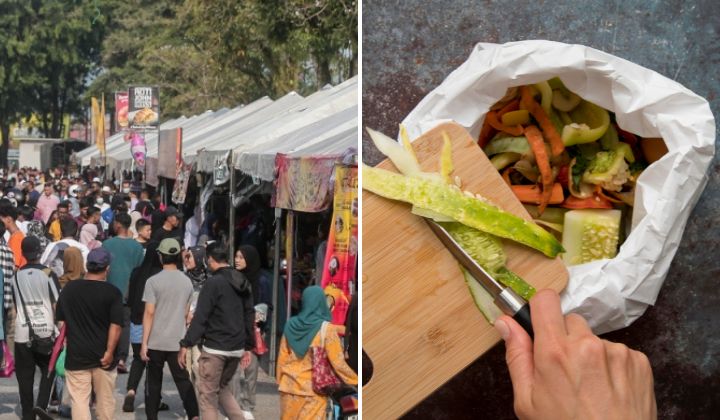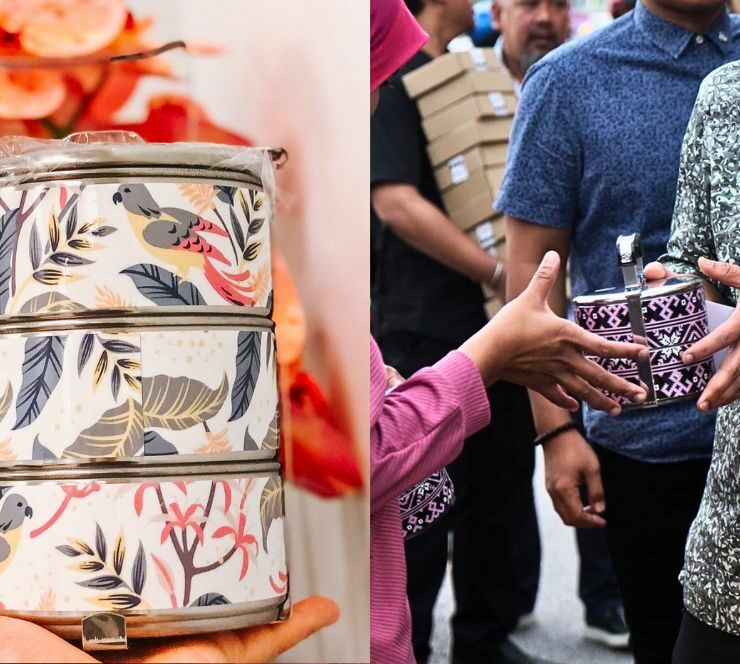KL & Negeri Sembilan Lead Ramadan Food Waste, Yet Malaysia Sees Overall Decline
Based on the trend, food wastage is expected to decrease by 3% in all states that implement the Solid Waste and Public Cleansing Management Act 2007.

Subscribe to our FREE Newsletter, or Telegram and WhatsApp channels for the latest stories and updates.
Kuala Lumpur and Negeri Sembilan recorded an increase in food waste during Ramadan last year.
The Chief Executive Officer of the Solid Waste Management and Public Cleaning Corporation (SWCorp), Datuk Ahmad Husaini Abdul Rahman, said the two states saw an increase of 0.93% and 0.73% respectively compared to the same period last year.
In 2023, 64,125.85 tons of solid waste, of which 22,732.61 tons was food waste, was disposed of in Kuala Lumpur.
In Negeri Sembilan, 28,044.89 tons of solid waste, including 9,941.91 tons of food waste, was disposed of during the same period.
Meanwhile, five states under the control of SWCorp saw a decrease. A significant decrease is recorded in these five states:
- Pahang 13.01%
- Kedah 5.57%
- Perlis 3.71%
- Johor 3.28%
- Melaka 2.49%
On average, 8.159 tons of solid waste is disposed of in 29 landfills in Ramadan 2023 daily. Of that amount, 35.45% or 2,892 tons are food waste.
While the numbers look huge, the amount of food waste disposed during Ramadan 2023 has decreased by 3.07% compared to previous years.
From 2019 to 2022, the amount of food waste increased during Ramadan.
According to the New Straits Times, food wastage is expected to decrease by 3% in all states that implemented the Solid Waste and Public Cleansing Management Act 2007.
This effort to reduce food waste is in line with the “Appreciate Food, Avoid Waste” campaign by the Housing and Local Government Ministry.
The campaign aims to contribute in helping to halving global per capita food waste by 2030 under the Sustainable Development Goal (SDG) 12.3.
How you can help reduce food wastage?
We can help reduce food wastage by being mindful of how we choose to consume food. Here are some ways you can reduce food wastage at home or when you eat out:
1. Use leftover food creatively
If you have leftover food that is still safe to eat, don’t let it go to waste. These leftovers may not be much but can still be repurposed into a delicious meal. With a simple Google search at your fingertips, you can find different recipes using leftover ingredients.
READ MORE: 6 Delicious Recipes Using Leftover Food To Try To Reduce Food Wastage
2. Create a meal plan
If you plan to cook at home, it’s good to have a meal plan so you don’t buy too much fresh food at the supermarket. A meal plan can also help you plan how to fully utilise the same ingredient for different meals. For example, a huge broccoli can be cut up to be cooked and eaten in two different meals.
3. Buy “ugly” food
Most of the time, “ugly” foods such as a bruised or oddly-shaped fruit are thrown away because it isn’t pleasing to the eye although it’s still safe to eat. To reduce food wastage, try to buy “ugly” food that is still safe to eat.
4. Make compost
The truth is, we can’t save every piece of food. Any remaining food waste can be used to make compost and provide nutrition for your garden. Composting food waste also helps to reduce landfill waste.
5. Don’t eat more than you can
We also waste food when we take or make more than we can eat and throw away the rest of the food. If you’re eating out, it’s better to start consuming a small amount of food first instead of piling up food on your plate. You can gradually go for more food until you’re feeling full.
READ MORE: Malaysians Dispose Enough Edible Food To Feed An Estimate Of 2 Million People Every Day, Says NGO
Share your thoughts on TRP’s Facebook, Twitter, and Instagram.





